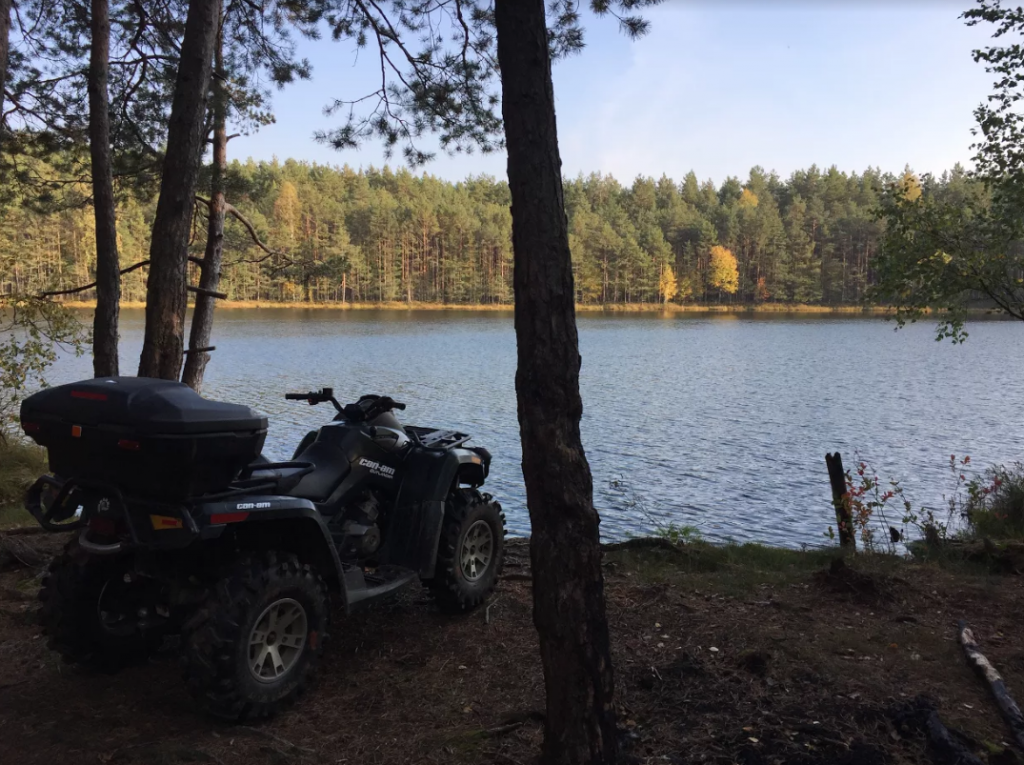Melsoft founder Alexey Meleshkevich told Pavel Ryakkonen in an interview about the history of the studio, its best projects and internal processes.
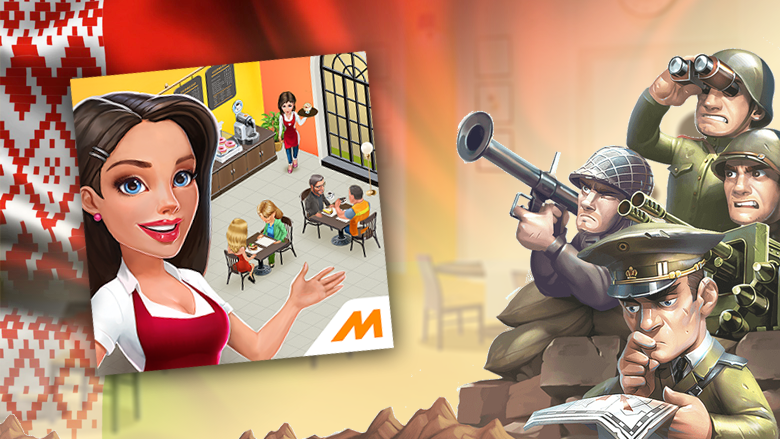
Tell me how you came to the gaming industry. How did it all start?
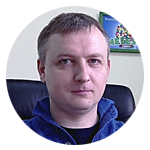
Alexey Meleshkevich
It all started in 2002 with a small apartment in Minsk, where we tried to make a game Arise.
I just graduated from university and by some miracle got into a gaming startup. However, at that time we did not know such terms yet. We tried to realize an ambitious idea, find a publisher and start earning by doing what we love — games.
A few months later I left our warm company. The reason is simple: I objectively lacked experience.
By the way, the same “apartment” grew into the Arise development studio, which made games in the RTS genre until it joined Wargaming in 2007. The guys from Arise formed the backbone of tank development, and many of them are still working on World of Tanks today. Such is a small Belarusian game dev.
I have been working as a programmer for a long time in different companies, gaining experience. These were mostly non-gaming companies. In parallel, I tried to organize my team.
In 2006, he completely went “free swimming” – he quit and started organizing gaming startups. I learned a lot at that time, mainly related to the principles of building a business and relationships.
Were startups gaming?
In one of the first beginnings, we were engaged in something like outsourcing – we were doing part of someone else’s game project. At the same time, they were sawing their little prototype. It didn’t even occur to me to do anything other than games.
Many people do not know about your and the team’s most serious achievements in the field of downloadable casual games for PC. I’m talking about Farm Frenzy. How did you move from startups to your own development?
At the beginning of 2007, I borrowed “a lot of money”, put together a studio and in September of the same year released “Merry Farm” (in the English version – Farm Frenzy). From that moment on, everything changed.

Farm Frenzy
It so happened that with this project we opened a new genre of games. Before that, there were no such successful farms.
Farm Frenzy had a lot of sequels, about ten. How did you manage to release so many games?
Yes, we thought at the time that it would be great to release games of this quality every month. We decided to start releasing the “Merry Farm” itself with such frequency.
In fact, these were the reskins of the original game with minor changes. Each subsequent game threw up the previous ones in sales. It was such a casual approach to seriality and games-as-a-service in a try-before-buy environment.
As you know, everything good comes to an end sooner or later. At some point, Alawar was connected to the creation of sequels of the “Farm” of other developers. Apparently, on more favorable terms for themselves.
Upset?
It wasn’t a big upset for me. We have already tried ourselves in other genres, new technologies. I foresaw the decline of the casual PC games industry and was in a hurry to gain experience in a new market.
When publishers start leaving 10% royalties to developers, publishers and developers working with them come to an end.
You also did a joint company with Alawar, and then became independent again. How did all this happen?
Not really. We have never teamed up with Alawar. They collaborated according to the classic “developer — publisher” scheme: there were contracts for the development of games, which they partially advanced and published.
Yes, they tried to make us an internal studio, but it didn’t go beyond the agreement of intent.
When Alawar’s PR service announced the purchase of our studio (I don’t know why), to be honest, I didn’t attach much importance to it. At that moment, it was necessary to focus on development.
Which project was the most successful after Farm Frenzy?
The first fritupley project without a publisher – “Toy Defense” – was much more successful than “Merry Farm”. It could have been even better, of course, but our inexperience in the fritupley and the mobile market affected us.
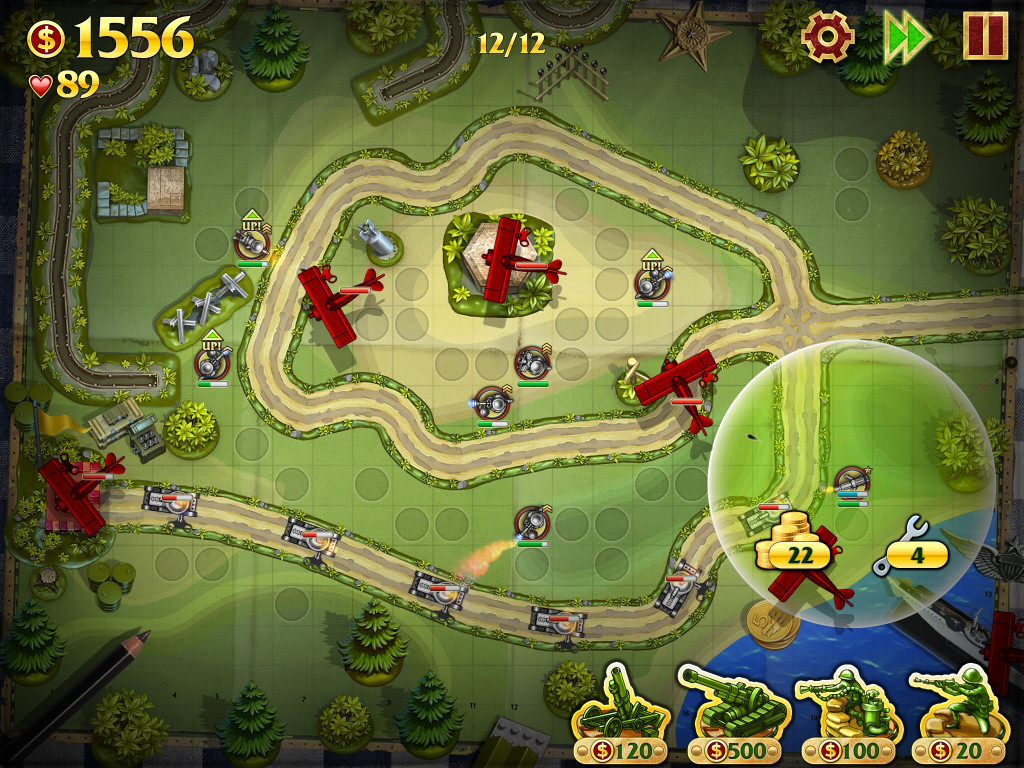
Toy Defense
At Toy Defense, we mastered it all from scratch, and, of course, we did not reach the level of guys who had been making browser and social games for years. This was especially felt in terms of marketing activities. Despite this, we managed to achieve more than 10 million installations in the first year of operating the project.
After that, we experimented a lot, gained experience. In 2015, another game was launched — My Café: Recipes & Stories.
Launched is not quite the right word.
The world release happened only in May 2016: the project spent almost a year in softlonch. First, they tested it in their native penates (Friends & Family test), then in more classic softlonch countries.
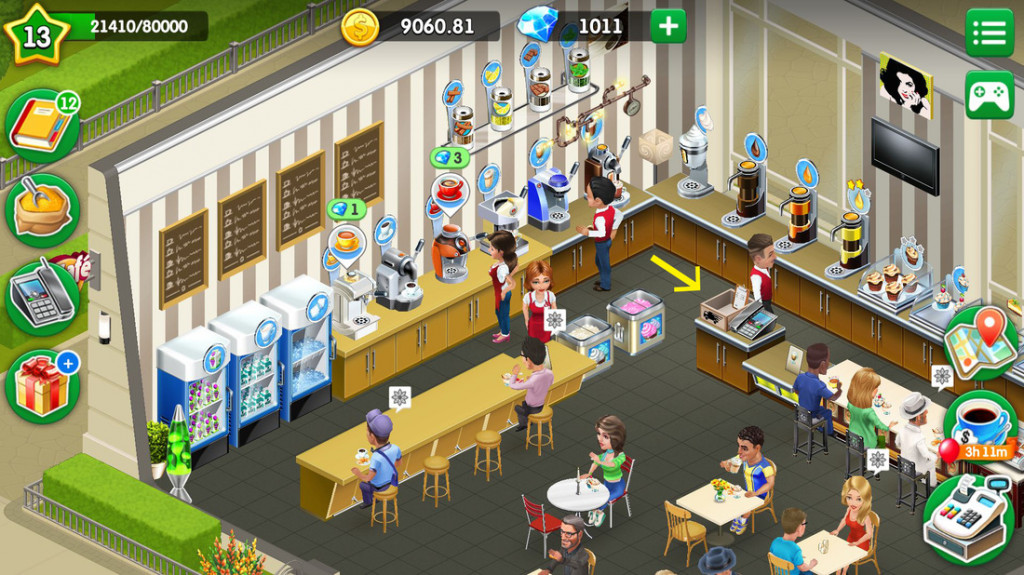
My Café: Recipes & Stories
The Coffee Shop has repeatedly received features from platforms, and recently the App Store team included it in the Best of 2016 list. Many thanks to the guys from Google and Apple for their trust and recognition!
Perhaps, at the moment, this is the best of my projects. But an understanding of how to do even better has already taken shape. Therefore, all the most successful things are ahead.
As can be seen from your projects, you (and the team) have a special love for time managers in their various manifestations. What do you think this is related to?
I think this is a consequence of accumulated expertise. With the “Merry Farm” – everything is clear: we have made a lot of them and have been doing them for a long time.
The current “Coffee Shop” is the third incarnation of our old game Jo’s Dream Organic Coffee: redesigned, augmented, innovative and so on, all as we like.
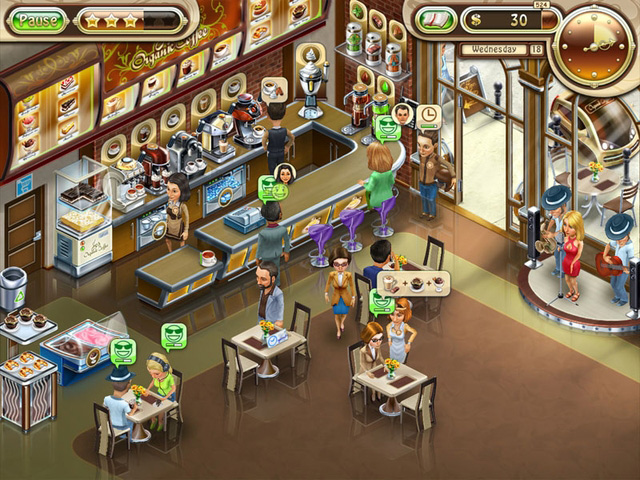
Jo’s Dream Organic Coffee
“Soldiers” was made more than a year and a half before the release, although it looks like a very simple game.
In addition to time managers, we had three-in-a-row, and bodybuilders, and battlers, and even an online market simulator in real time.
Success is just the visible tip of the iceberg, unfulfilled hopes, expensive experiments, mistakes and disappointments are hidden under the water.
How did you rebuild the processes of freemium development on frituplay? Any difficulties?
Oh, yes, some more! It’s like going from kindergarten to university. First of all, it was necessary to rebuild the process of thinking. In the case of frituplay, it is not enough to release a high-quality, interesting project. It is necessary to ensure retention, virality and monetization: at first we could not pull more than one parameter.
Between the “Soldiers” and the “Coffee Shop” we had about two dozen not the most successful projects. So the experience was hard and expensive for us. Over the years, we have tried more than one scheme of labor organization. In the end, regardless of Supercell, we came to a similar model. Now Melsoft has several independent project teams with a full development cycle. No matrix structures or pipelines.
How do you organize the exchange of experience between the teams?
It’s simple: people communicate, share experiences, sometimes move from one team to another. It happens when one team helps another, if there is such a need and opportunity. Also inside, we encourage the creation of so-called guilds, when people of the same specialty begin to organize themselves in order to transfer experience to each other. They hold their gatherings-rallies, micro-conferences with reports.
“Coffee Shop” is the company’s most popular game right now, right? How did success come about? How were users recruited? Is this a successful feature, partnership, or a lot of work on the purchase of traffic?
Of those that are in operation — yes, at the moment the most popular. It’s too early to talk about success. The project has not yet fully realized its potential. There is a large list of game features that are not finished, not finished. So we have a lot of work ahead of us. I would say that the project is technically implemented by 30 percent. But I am glad that people like it.
The game was made according to the principles of Lean Startup. We released the project at the early prototype stage with live audience updates twice a month. Before the global launch, there were at least two turns when the design and gameplay changed dramatically.
We continued to conduct small experiments and rebalances after the release. Sometimes they lead to a drop in some parameters and often negatively affects the assessment. However, despite this, the average score is kept at 4.6.
In the beginning, we spent $200 dollars on Facebook traffic, and from that moment the installs went up. After the global release, the game, of course, has comprehensive marketing and operational support.
Let’s talk a little more about the team. Can you identify the main stages of growth? How did this affect the formation of the team, the internal relationships? Were there any turning points in the process of building a company?
We are permanently in the process of honing and improving the structure and processes. So there are either no turning points or there are too many of them.
The company has evolved with the growth of the number of employees and in accordance with new market requirements. For example, when Alawar was publishing our games, we didn’t need our own marketing department. Then it was necessary to form it. When there were more than ten people in the team, the first layer of managers appeared, more than fifty – the second. After going through several stages of structural changes, we settled on the format of small teams and a small leadership team.
How many employees are there in Melsoft now?
We try not to recruit a lot of people, we avoid explosive growth. There was such a period in the life of the company: they doubled every year. The maximum was 114 people. We then received catastrophic penalties in efficiency. In recent years, there have been about 80 of us on average. Someone leaves right now, someone joins tomorrow. Vacancies are always open. We are looking for diamonds, just like everyone else. Including among students, starting from the first courses. I recommend the most active and motivated of those I teach at the university as interns in our company.
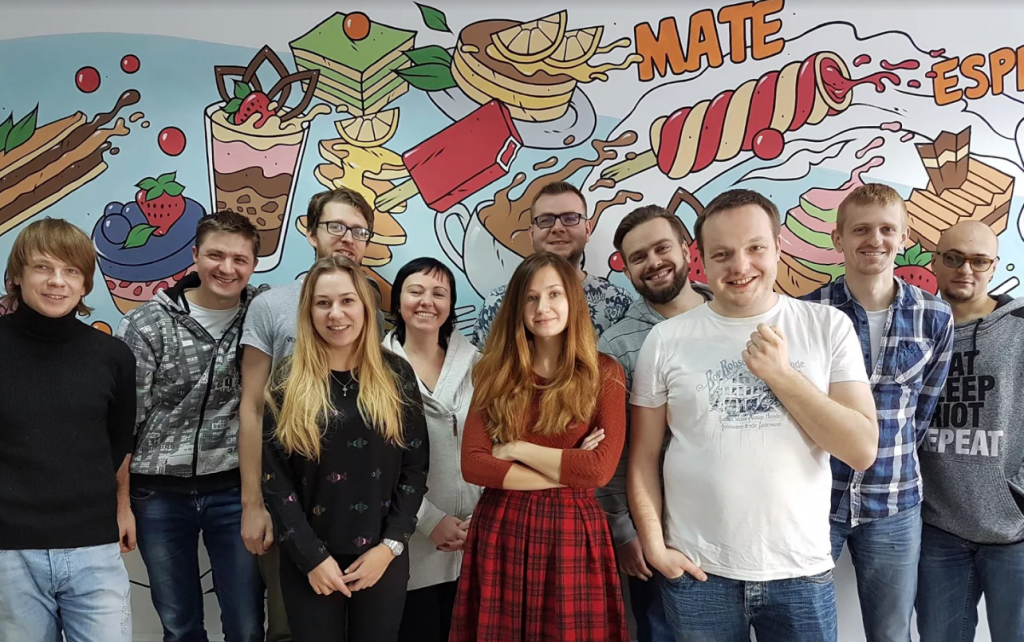
Recently, companies are increasingly working with remote employees. Not only in terms of regular outsourcing, but as with permanent team members. What is your position on this?
We have such experience, and we continue to work with some specialists remotely now. For example, the scriptwriters for the “Coffee Shop” are working in this way right now. At one time, we used remote artists very actively. The disadvantages of this approach are obvious as always — stretched communications and insufficient control.
For example, one day an extremely skilled artist, who was very much relied on while working on farms, simply disappeared for a couple of months. I didn’t get in touch. Such surprises usually negatively affect the timing and quality. But there is much more positive experience.
Not so long ago, a year and a half ago, you entered into a strategic partnership with Wargaming. What has changed?
Thanks to cooperation with Wargaming, we have tightened our expertise in marketing, operating (working with the gaming community) and HR. A lot of things.
On the other hand, partners have gained access to our expertise in game development and production organization.
Some risks were also removed for the company: financial, legal. In this sense, it became calmer.
What do you think, where is the gaming industry moving, which areas are the most promising? Or, maybe, which directions are personally interesting to you.
I think the “classic” directions will continue to work. People will not change their tastes quickly.
Now everyone is hearing VR, AR and neural networks. I think in the future the audience of players will continue to grow due to the emergence of new platforms and new opportunities arising with the development of technology.
In this regard, we live in a very interesting time. It is interesting to observe what colleagues are doing in this direction. Most of them try to copy successful solutions, but there are also those who pleasantly surprise by creating truly original projects. And this is very pleasing.
Do you have any hobbies besides games, tell me, it’s interesting.
Yes, of course. Snowboarding, wakeboarding, kitesurfing are all “board” related to air and water in different aggregate states. I don’t really like to go somewhere, so I find it all in Belarus.
In the off-season, however, it can be a little boring. To fill this niche, I found an excellent way out in walking through our forests and swamps on an ATV. I have several of them so that I can invite friends.
